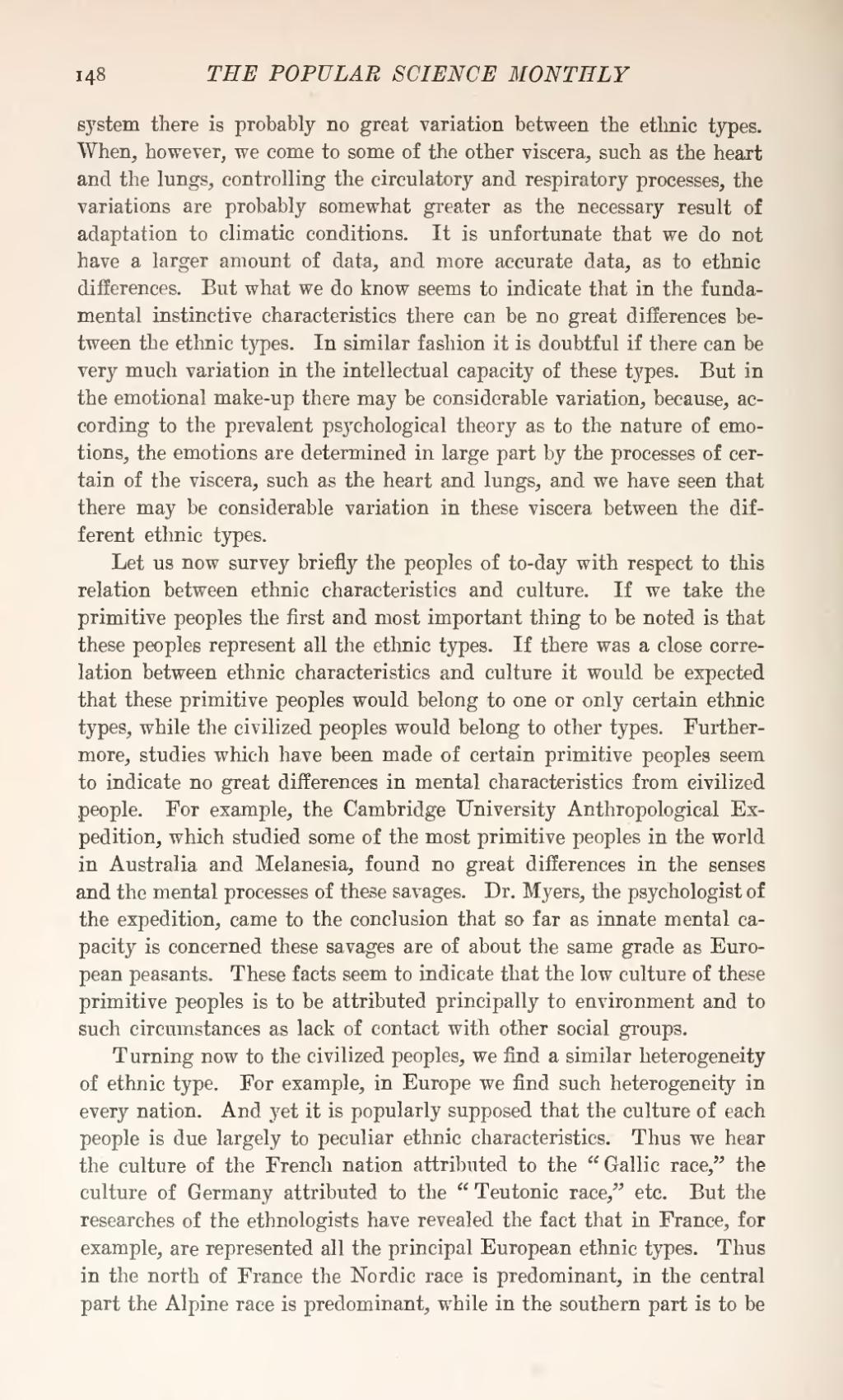system there is probably no great variation between the ethnic types. When, however, we come to some of the other viscera, such as the heart and the lungs, controlling the circulatory and respiratory processes, the variations are probably somewhat greater as the necessary result of adaptation to climatic conditions. It is unfortunate that we do not have a larger amount of data, and more accurate data, as to ethnic differences. But what we do know seems to indicate that in the fundamental instinctive characteristics there can be no great differences between the ethnic types. In similar fashion it is doubtful if there can be very much variation in the intellectual capacity of these types. But in the emotional make-up there may be considerable variation, because, according to the prevalent psychological theory as to the nature of emotions, the emotions are determined in large part by the processes of certain of the viscera, such as the heart and lungs, and we have seen that there may be considerable variation in these viscera between the different ethnic types.
Let us now survey briefly the peoples of to-day with respect to this relation between ethnic characteristics and culture. If we take the primitive peoples the first and most important thing to be noted is that these peoples represent all the ethnic types. If there was a close correlation between ethnic characteristics and culture it would be expected that these primitive peoples would belong to one or only certain ethnic types, while the civilized peoples would belong to other types. Furthermore, studies which have been made of certain primitive peoples seem to indicate no great differences in mental characteristics from civilized people. For example, the Cambridge University Anthropological Expedition, which studied some of the most primitive peoples in the world in Australia and Melanesia, found no great differences in the senses and the mental processes of these savages. Dr. Myers, the psychologist of the expedition, came to the conclusion that so far as innate mental capacity is concerned these savages are of about the same grade as European peasants. These facts seem to indicate that the low culture of these primitive peoples is to be attributed principally to environment and to such circumstances as lack of contact with other social groups.
Turning now to the civilized peoples, we find a similar heterogeneity of ethnic type. For example, in Europe we find such heterogeneity in every nation. And yet it is popularly supposed that the culture of each people is due largely to peculiar ethnic characteristics. Thus we hear the culture of the French nation attributed to the "Gallic race," the culture of Germany attributed to the "Teutonic race," etc. But the researches of the ethnologists have revealed the fact that in France, for example, are represented all the principal European ethnic types. Thus in the north of France the Nordic race is predominant, in the central part the Alpine race is predominant, while in the southern part is to be
